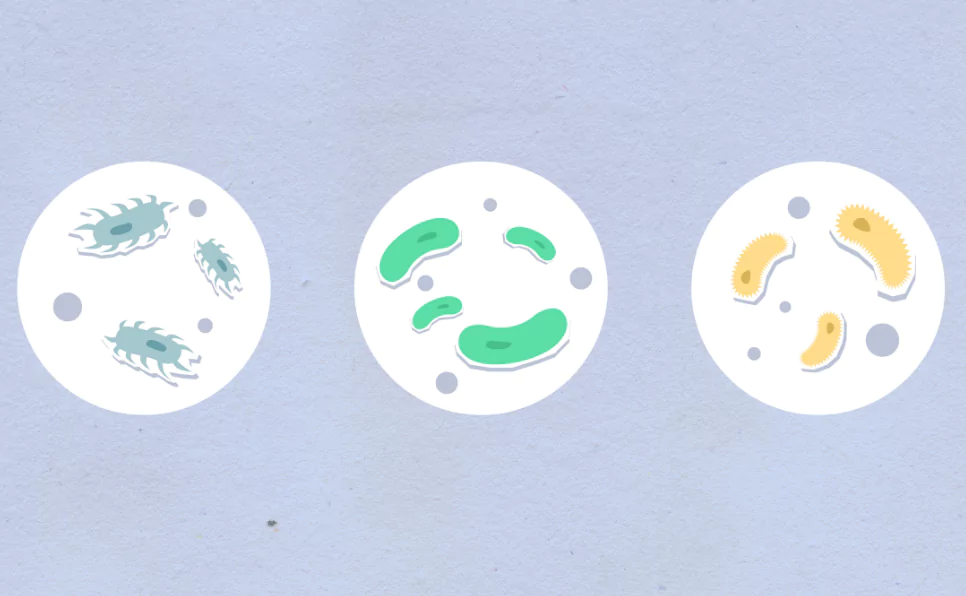Fill in the ABO and Rh factor details of parents in below calculator and find out the predicted probability of child’s blood group.
Blood Type Calculator
Try Other Genetic Calculators:
Science of Blood Groups
Before the arrival of your little one, understanding the genetic makeup that determines their blood type can be as intriguing as it is vital.
Similar to predicting hair color, blood type is a result of genetic inheritance from both parents. Our Blood Type Calculator allows you to input the ABO and Rh blood types of the parents to predict the possible blood types of your future child.
Blood types are determined by the ABO blood group system and the Rh factor. The ABO blood group system includes four main types: A, B, AB, and O, which are inherited from our parents.
The presence (Rh+) or absence (Rh-) of the Rh factor further categorizes each blood type, adding another layer to blood type genetics.
Genetics of Blood Groups
The inheritance of blood types is a model of multiple allele inheritance, where more than two possible alleles determine a trait.
A child’s blood type is influenced by the combination of alleles inherited from their parents. Our calculator uses established genetic principles to predict possible blood types based on the combinations of parents’ alleles.
Key Points of ABO and Rh Factor Genetics:
ABO Blood Group:
- Each person inherits one of the possible alleles (A, B, or O) from each parent. The combination of these alleles (one from each parent) forms the child’s blood group.
- A and B are dominant alleles, while O is recessive. Thus, a child with at least one A allele from a parent will likely have blood type A unless there is a B allele from another parent where they will show codominance (AB).
Rh Factor:
- Similarly, the Rh factor is inherited as a separate trait, where the positive Rh factor (Rh+) is dominant over the negative (Rh-).
- A child is Rh+ if at least one parent passes the Rh+ allele, but both parents must pass the Rh- allele for the child to be Rh-.
How Our Blood Type Predictor Works
Select Blood Type of Mother and Father:
- Mother’s ABO Blood Type
- Mother’s Rh Factor
- Father’s ABO Blood Type
- Father’s Rh Factor
Based on the provided information the calculator will predict the genotype of parent that correlates with Blood group information.
Then based on the possibilities of allele mixing during reproduction, the this child blood group predictor will give out the possibilities of different possible blood groups in child and the probabilities of their occurrence.
It will provide estimate for ABO blood group and Rh factor separately as they are controlled by individual genes.
The calculator simplifies the complex interactions of these genes into a user-friendly format, allowing you to see all potential blood types your child might inherit.
The Medical Importance of Knowing Your Child’s Blood Type
While primarily used for educational purposes, knowing a child’s potential blood type can be crucial in medical contexts, such as ensuring safe blood transfusions and understanding pregnancy risks associated with Rh incompatibility.
Safe Blood Transfusions
Blood transfusions are a common and critical medical procedure used in various settings, including during surgeries, for treating anemia, or after significant blood loss.
However, for a transfusion to be safe, the blood type of the donated blood must be compatible with the recipient’s blood type. Here’s how the blood type plays a role:
ABO Blood Group Compatibility:
- The ABO blood group system is based on the presence of antigens on the surface of the red blood cells and antibodies in the plasma. People with Type A blood have A antigens on their cells and B antibodies in their plasma; Type B blood has B antigens and A antibodies; Type AB blood has both A and B antigens but no antibodies; and Type O blood has no antigens but both A and B antibodies.
- Transfusions must match these antigen-antibody interactions to avoid an immune response. For example, giving Type A blood to a Type B person would cause an immune attack against the A antigens by the recipient’s B antibodies, potentially leading to serious complications.
Universal Donors and Recipients:
- Type O-negative blood is often called the universal donor type because it can be given to any other blood type due to its lack of A, B, and Rh antigens, minimizing the risk of an immune response.
- Conversely, Type AB-positive is considered the universal recipient because individuals with this blood type can receive any ABO and Rh type without adverse reactions due to the absence of all antibodies against ABO antigens and the presence of the Rh antigen.
Understanding Pregnancy Risks With Rh Incompatibility
Rh factor is another critical component of blood typing, especially during pregnancy. Rh incompatibility can occur when an Rh-negative mother is carrying an Rh-positive baby, leading to potential health risks for the baby:
Rh Sensitization:
- If the blood cells from an Rh-positive baby enter the bloodstream of an Rh-negative mother, her immune system may recognize the Rh proteins as foreign substances and begin producing antibodies against them. This immune response is known as Rh sensitization.
- During a first pregnancy, this might not cause significant problems. However, if a subsequent pregnancy involves another Rh-positive baby, these antibodies can cross the placenta and attack the baby’s red blood cells, leading to hemolytic disease of the newborn (HDN).
Hemolytic Disease of the Newborn (HDN):
- HDN can result in serious conditions such as anemia, jaundice, heart failure, and even fetal death. The severity of HDN can vary; mild cases may cause only slight anemia, while severe cases can be life-threatening.
- Preventing HDN involves treating the Rh-negative mother with Rh immunoglobulin (RhIg). This medication is given during and after the pregnancy to prevent the mother’s immune system from developing antibodies against Rh-positive blood cells.
Why Knowing Blood Type Matters
Knowing a child’s potential blood type through genetic prediction can help in several ways:
Preparatory Measures for Pregnant Women:
If it’s known that there is a risk of Rh incompatibility, health care providers can monitor the pregnancy more closely and administer RhIg at the appropriate times to prevent sensitization.
Emergency Preparedness:
In emergencies requiring transfusions, knowing the child’s blood type can speed up the process of finding compatible blood, reducing the risk of transfusion reactions.
Informed Medical Decisions:
For parents, understanding the blood type of their child can lead to informed discussions with healthcare providers about potential risks and preventive measures that may be necessary, both immediately after birth and throughout the child’s life.
So, while the prediction of a child’s blood type is fascinating from a genetic standpoint, its practical implications in medical contexts are profound, impacting not just immediate medical care but also long-term health considerations.
The Role of Our Calculator in Genetics Education
Our Child Blood Type Calculator serves as a bridge between complex genetic science and personal curiosity, offering a tool for education and engagement.
While the calculator provides a foundation for understanding genetic inheritance, but there are some rare blood groups not reported in this calculator.
Note: It’s adviced to get the blood group tested by an accredited medical lab before any important medical care, because many people can remember their blood group wrong, which might result in different prediction than actual. Plus in most cases there is more than one possible combination so child might have different blood group than the most predicted option.
FAQs About Blood Type Prediction
Can Two O Type Parents Have a Non-O Child?
No, if both parents are blood type O, carrying only recessive O alleles, their children can only inherit type O.
Is It Possible for an Rh- Child to Have Rh+ Parents?
Yes, it is possible if both parents are heterozygous Rh+ (i.e., each carries one Rh+ and one Rh- allele), giving a chance for the child to inherit the Rh- allele from both parents.
How Accurate Are Blood Type Predictors?
Blood type predictors are highly accurate because ABO and Rh blood types follow straightforward Mendelian inheritance patterns. However, mutations and extremely rare genetic variations can lead to unexpected results.

Dr. Sumeet is a seasoned geneticist turned wellness educator and successful financial blogger. GenesWellness.com, leverages his rich academic background and passion for sharing knowledge online to demystify the role of genetics in wellness. His work is globally published and he is quoted on top health platforms like Medical News Today, Healthline, MDLinx, Verywell Mind, NCOA, and more. Using his unique mix of genetics expertise and digital fluency, Dr. Sumeet inspires readers toward healthier, more informed lifestyles.




